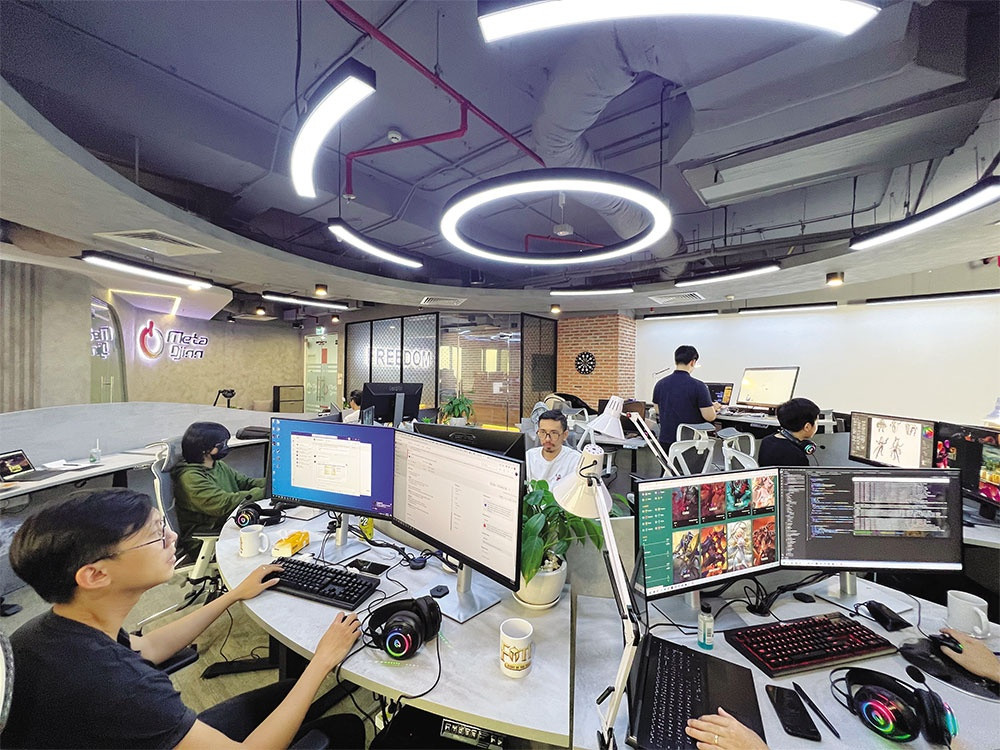Facebook parent company Meta last week announced that more than 11,000 employees would lose their jobs. It was reported that the recruiting and business teams would be the first that would see lay-offs, and former workers will be provided with at least four months of severance.
 |
The staff reductions are part of Meta’s first major budget cuts since Facebook was founded in 2004, mainly due to poor business results over the past several months, rival gains, and other industry and customer behavioural changes, according to founder Mark Zuckerberg.
Data from Meta shows that the number of Facebook users is showing signs of slowing down, growing only 2 per cent from the end of August to the end of September, while the number of new employees increased by 28 per cent.
Meta was reported to have about 87,000 employees worldwide before the news was announced, working for different platforms including Facebook, Instagram, and WhatsApp.
Meta reported a 4 per cent drop in revenues for its third quarter to $27.7 billion, from $29 billion a year earlier. Profits also fell 52 per cent to $4.4 billion from $9.2 billion in the same period in 2021.
Meta’s upheavals have reflected the dimmed performance of Silicon Valley tech firms, but it is not the only company to announce mass lay-offs.
At the start of the month, new Twitter owner Elon Musk slashed half of its 7,500 employees, saying the move was necessary to stem losses at the social network.
John Zimmer and Logan Green, two co-founders of ride-hailing company Lyft, also said they would cut 13 per cent of staff, or nearly 700 jobs, out of a total of more than 5,000 employees. In July, the company laid off about 60 employees and had previously planned to stop hiring and reduce budgets in some departments.
The online payment giant Stripe announced that it plans to cut 14 per cent of its workforce. Meanwhile, a series of other businesses such as Amazon, Apple, Shopee, Tesla, Microsoft, and Snapchat have been releasing thousands of employees over the past few months alone.
The wave of job cuts takes place as interest rate hikes, particularly in the United States, fuel inflation rises. This is one reason why many startups have been forced to lay off employees to save costs. According to tracker website Layoffs.fyi, 763 startups have laid off over 106,000 employees globally so far this year
But for some of the bigger groups, overinvestment in the pandemic period has also affected the situation. Last week, Zuckerberg of Meta said he expected pandemic habits in terms of online use would be sustained, but they instead dropped back to near pre-pandemic levels.
The big name moves are not reflecting much on the job market in the tech sector in Vietnam, where strong digital transformation is taking place with large demand for technology human resources.
According to the Tech Hiring 2022 report from IT recruitment platform TopDev, Vietnam still has a shortage of 150,000-195,000 programmers and engineers annually to cover 2022-2024.
MobiFone has announced the recruitment of 300 more IT positions for the fourth quarter, adding more workforce to the ecosystem of 4,000 employees.
Dinh Viet Hung, chief technology officer of One Mount Group, said that the demand for tech HR in Vietnam is still high, especially at the end of this year when businesses are expanding production and accelerating digital transformation. “Development engineers, software engineering, AI, and middle management positions will be prioritised for recruitment,” Hung said.
Commenting on why the tech industry job market in Vietnam is going against the trend of massive lay-offs worldwide, Hung said that Vietnam is 10-15 years behind developed countries in the field of IT; therefore, the demand for recruitment in this industry continues to increase, while businesses are also being supported by the government for the development of digital economy.
“At least for the next 15 years, technology will still be the focus industry and create many job opportunities for young workers,” he insisted.
According to Lazada Group’s CEO James Dong, one of the challenges facing technology-related fields today is raising a new round of capital from investors. However, the Vietnamese market still has many opportunities for companies with sustainable strategies.
“We will see many businesses in the e-commerce industry have to adjust their way of operation. Companies with sustainable investment strategies will have the advantage. We will continue to invest and expand recruitment in the Vietnamese market,” said Dong.
Source: VIR